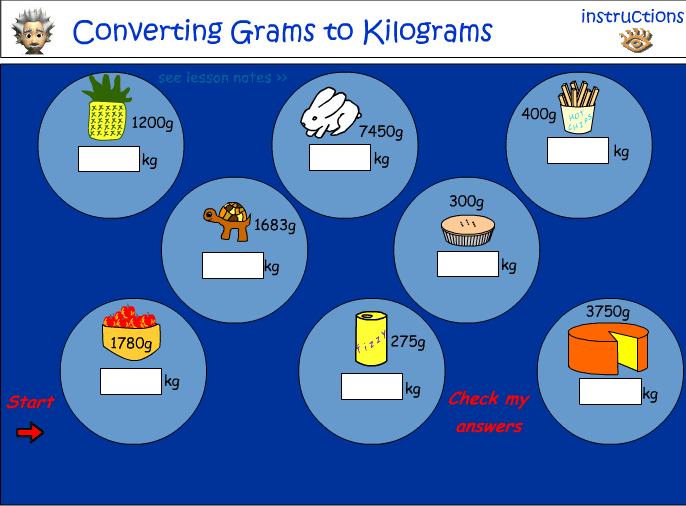

It is the equivalent of 1 gram divided by 1000.

Milligram (mg) – This unit is used for measuring very small amounts of substances for example, ingredients in medicines or drugs and some ingredients in recipes. Therefore 1000 gram = 1 kilogram and 1000 kilogram = 1 tonne.įor everyday transactions especially in the conduct of commerce, there are four commonly used units: the milligram, gram, kilogram and tonne. When the kilogram is divided by 1000, the result is 1 gram (g) and when the kilogram is multiplied by 1000, the result is 1 metric tonne (t). The SI Base Unit for measuring mass is the kilogram (represented by ‘kg’).
Grams to kilograms how to#
To ensure that both consumers and retailers understand how to use the international system of units, let us look at the unit used for measuring mass commonly referred to as weight: Consumers on the other hand, need to demand that such goods be sold to them in the correct manner. Vendors and shopkeepers who engage in practice of selling solid good by volume (liquid measure) need to follow the steps of most of our supermarkets and sell such products by weight (grams and kilograms). While it is believed that this only occurs in Guyana, resellers are urged to stray from this culture and adhere to the metric system.

The concern that this raises is that shopkeepers and vendors encourage the practice although they themselves purchase these items in 45 kg bags (by weight). It continues being a practice of consumers to request solid food products using the imperial units for liquids and has continued even after promotion of the metric units. Therefore, consumers are encouraged to request these products in grams and kilograms instead of in pints and gallons. Channa (chick peas), beans and rice are examples of solids food products and should be weighed at the time of sale. Being a decimal based system, it follows measurements and units that have bases in multiples of ten (10), one such being the kilogram which is used to measure mass. The system is usually represented as simply S.I., an abbreviation meaning Systeme Internationale or International System. The International System of Metric Units as opposed to the Imperial System of Measurement is the legal system of measurement used in Guyana.


 0 kommentar(er)
0 kommentar(er)
